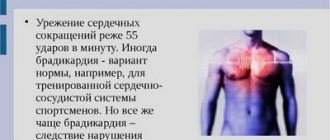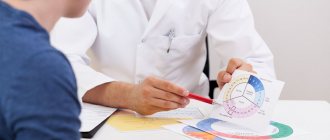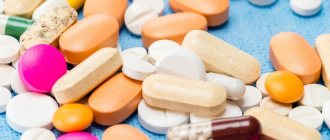Antidepressants or thymoanaleptics (thym + Greek analepticos - strengthening, restorative) activate synaptic transmission in adrenergic, dopamine, serotonin, choline, tyraminergic and other synapses in the central nervous system. This action is carried out in different ways: 1) irreversible destruction or 2) temporary and reversible blocking of the enzyme that breaks down mediators (monoamine oxidases type A and type B, the latter provides deamination of phenylethylamine and some other amines), 3) general or 4) selective blocking of the retake of mediators, 5) there are, in addition, drugs that do not affect the reuptake of mediators. Some antidepressants therefore have stimulating properties, while others, on the contrary, have sedative, anxiolytic or nootropic properties. Let us present a description of the main groups of antidepressants.
| | Attention! Do not start pharmacological treatment without consulting a psychiatrist |
Pharmacological action of MAO inhibitors
MAO inhibitors are classified according to their pharmacological properties into non-selective irreversible, reversible selective and irreversible selective.
Nonselective irreversible MAO inhibitors are close in chemical structure to iproniazides, improve the general condition of patients with depression and reduce angina attacks.
Reversible selective MAO inhibitors have antidepressant and psychoenergizing effects and actively suppress the deamination of serotonin and norepinephrine.
Irreversible selective MAO inhibitors have an antiparkinsonian effect and are involved in the metabolism of dopamine and catecholamines.
Interactions
The combination of monoamine oxidase inhibitors with substances that affect monoamine metabolism can lead to an unpredictable increase in their effect and be life-threatening.
Foods incompatible with MAOIs
Significant danger when using MAOIs, especially non-selective irreversible MAOIs
, represents the consumption of foods containing various monoamines and their metabolic precursors. First of all, it is tyramine and its metabolic precursor, the amino acid tyrosine, as well as tryptophan. Tyramine, like amphetamine psychostimulants, causes the release of catecholamines from nerve endings. Its combined use with MAOIs is fraught with a hypertensive crisis (see tyramine syndrome).
Tryptophan is used by the body to produce serotonin, and eating foods containing high amounts of tryptophan can result in serotonin syndrome.
Foods to avoid:
- All cheeses, except fresh homemade cheese (cottage cheese), are especially sharp and aged; milk, cream, sour cream, kefir
- Ice cream with syrup
- Red wine, beer containing yeast (unrefined), Riesling and sherry wines, ale, liqueurs, whiskey
- Smoked meats, salami, chicken and beef liver, chicken pate, meat broths, marinades, any stale meat products, fried poultry and fried game
- Caviar, smoked fish, herring (dried or salted), dried fish, shrimp paste, marinated fish (fresh fish is relatively safe)
- Eggs
- Yeast extracts and brewer's yeast (regular baker's yeast is safe)
- Protein supplements
- Legumes (beans, lentils, beans, soybeans), soy juice
- Sauerkraut
- Overripe fruits, canned figs, bananas, pineapples, avocados, raisins
- Spices
- All types of cookies
Products to be treated with caution:
- White wine, port
- Strong alcoholic drinks (risk of respiratory depression)
- Some fruits such as figs, prunes, raspberries, pineapple, coconut
- Fermented milk products (yogurt, yoghurt, etc.)
- Chocolate
- Soy sauce
- Peanut
- Caffeine, theobromine, theophylline (coffee, tea, mate, Coca-Cola)
- Spinach
Irreversible, non-selective MAOIs require avoidance of these products and the medications and drugs mentioned below while taking them and for two weeks after you stop taking them. In the case of reversible MAOIs, dietary restrictions are usually less stringent and apply to the time the substance remains in the body (no more than a day). You should also refrain from using drugs and surfactants listed in the list together with reversible MAOIs until they are completely eliminated.
Interaction with drugs and narcotics
To prevent tyramine syndrome and serotonin syndrome, the following drugs should be avoided during MAOI therapy:
- Psychostimulants of the amphetamine group and related ones - increasing the levels of catecholamines in the synaptic cleft (amphetamine, methamphetamine, sydnocarb, etc.)
- Any empathogens (entactogens)
- Cold remedies containing sympathomimetics (ephedrine, pseudoephedrine, phenylpropanolamine, phenylephrine, chlorpheniramine, oxymetazoline, etc.): Coldrex, Theraflu, Rinza, etc., nasal sprays and drops (naphthyzine, etc.)
- Weight loss products
- Oral hypoglycemic agents
- Neuronal monoamine reuptake inhibitors: Cocaine
- Cyclic antidepressants, including clomipramine, imipramine
- Selective serotonin reuptake inhibitors (SSRIs), eg paroxetine, citalopram, fluoxetine
- Venlafaxine
- Trazodone, nefazodone
After discontinuation of fluoxetine, a period of at least five weeks should be maintained before initiating an irreversible MAOI to prevent serotonin syndrome. In older patients, this period should be at least eight weeks. After stopping short-acting SSRIs, there should be a break of at least two weeks before prescribing an MAOI.
When switching from irreversible MAOIs to SSRIs, a break of four weeks should be maintained; When switching from moclobemide to SSRIs, 24 hours is sufficient.
The likelihood of developing serotonin syndrome when an SSRI interacts with selegiline or moclobemide is significantly lower compared to the risk of its occurrence when combining an SSRI with a non-selective irreversible MAOI, but such an interaction is still possible. Serotonin syndrome was also observed during monotherapy with moclobemide.
MAOIs potentiate the effect of antipsychotic drugs. The combination of MAOIs with a number of antipsychotics (aminazine, tizercin, teraligen, mazeptil, triftazine, moditene, neuleptil, thioridazine, etc.) can lead to increased toxicity of antipsychotics.
MAO inhibitors potentiate the effect of psychostimulants.
When MAOIs are combined with M-anticholinergics, the anticholinergic effect of M-anticholinergics may be enhanced.
Combination with antiepileptic drugs can lead to a change in the nature of epileptic seizures.
Irreversible MAOIs should not be combined with antihypertensive drugs due to the risk of severe orthostatic hypotension, or the dose of the antihypertensive drug should be reduced.
When used in combination with ganglion blockers, the effect of ganglion blockers is enhanced; this combination should be used with caution, starting treatment with small doses.
In combination with alpha-agonists, the risk of arrhythmias increases; the use of this combination is unacceptable. The risk of arrhythmias also increases when used together with beta blockers.
MAOIs enhance the effect of alcohol, sedatives and anxiolytics, as well as painkillers, sometimes bringing the effect of these drugs beyond the safety line.
MAOIs can complicate procedures involving anesthesia or analgesia, as they interact with narcotic substances, causing a syndrome manifested by agitation, fever, headaches, convulsions, coma with the possibility of death. They can cause respiratory depression. Fatal outcomes have been reported with the use of meperidine. Patients undergoing surgery should have their dose of MAO inhibitors reduced in advance to avoid adverse drug reactions.
The combined use of MAOIs and procarbazine may cause fever, seizures, and death.
MAOIs may enhance the hepatotoxic effect of hormonal contraceptives.
Diabetic patients taking insulin may experience a more dramatic decrease in blood sugar levels. In this case, the insulin dose can be reduced. The hypoglycemic effect of oral hypoglycemic drugs may also be enhanced.
The combined use of MAOIs and drugs for iodine therapy increases the side effects of MAOIs, so the use of this combination is unacceptable.
A MAO inhibitor should not be prescribed in combination with an MAO inhibitor: this can lead to fever, convulsions, and death (after stopping one MAO inhibitor, an interval of at least two weeks should be maintained before prescribing another MAOI).
Contraindications
Taking reversible selective MAO inhibitors is contraindicated in:
- Hypersensitivity;
- Acute inflammatory diseases of the kidneys and liver;
- Alcohol withdrawal syndrome;
- Pregnancy and lactation.
Also, reversible selective MAO inhibitor drugs are not prescribed in infancy.
Taking non-selective irreversible MAO inhibitors is not prescribed for:
- Hypersensitivity;
- Liver failure;
- Cerebral circulation disorders;
- Chronic renal failure;
- Chronic heart failure.
Taking irreversible selective MAO inhibitors is contraindicated in:
- Pregnancy and lactation;
- Taking other antidepressants;
- Hypersensitivity;
- Essential tremor;
- Huntington's chorea.
With caution, irreversible selective MAO inhibitors are prescribed for:
- Progressive dementia;
- Tardive dyskinesia;
- Severe psychosis;
- Peptic ulcer of the gastrointestinal tract;
- Prostatic hyperplasia;
- Severe angina;
- Angle-closure glaucoma;
- Large-scale tremor;
- Tachycardia;
- Pheochromocytoma;
- Diffuse toxic goiter.
MAOIs are not antidepressants
In addition, there are various drugs that function as monoamine oxidase inhibitors but are used to treat conditions other than depression. Listed below are medications that have MAOI properties but are not prescribed to treat depression.
Hydracarbazine . This is a drug with MAOI properties that is used primarily to lower blood pressure. Not many official studies have been conducted using this drug alone.
Isoniazid (Nidrasid) . It was this drug that prompted researchers to study the biological causes of major depression. It is widely used as a first-line prophylactic and treatment for tuberculosis. In the 1950s, it became widely used to treat tuberculosis, and many people began to notice mood-enhancing side effects. Due to numerous reports of mood elevation, this led researchers to create a new generation of antidepressants - MAOIs (monoamine oxidase inhibitors). []
Linezolid . The drug is used as an antibiotic for infections that cannot be treated with other antibiotics. Used to treat pneumonia, various skin infections and infections of the central nervous system. []
Procarbazine (Matulan) . It is a mild MAOI that is used to treat Hodgkin's lymphoma and various types of brain cancer as an anticancer drug. It has been around since 1969 and belongs to a group of drugs called “alkylating agents.” Due to its mild MAO inhibition, it increases neurotransmitter levels in the brain. []
Rasagiline (Azilect) : The drug is often used in treatment during the onset of Parkinson's disease. It inhibits MAO-B 14 times more than MAO-A. It has neuroprotective effects and was created as a result of the possible neurotoxicity of the drug Selegiline. []
Overdose
MAOI antidepressants are extremely toxic in overdose, and symptoms of intoxication do not necessarily appear immediately. In acute poisoning with large doses of MAOIs, general weakness, dizziness, ataxia, slurred speech, and clonic muscle twitching are observed; this is followed by the development of comatose states or convulsive seizures (such as generalized epileptiform seizures) followed by coma. After emerging from a coma, the stunned state may persist for some time. In some cases, coma does not occur, and the initial symptoms of overdose are replaced by delirious syndrome. Impaired consciousness in case of MAOI overdose is not always observed; in cases where they are absent, the depression that caused the prescription of MAOIs very quickly, paroxysmally, gives way to euphoria.
Manifestations of overdose may also include anxiety, confusion, hypertensive crisis, cardiac arrhythmias, rhabdomyolysis, and coagulopathies.
Due to the high toxicity of MAOIs, they should be prescribed to patients with suicidal tendencies in quantities sufficient for only a few days of use.
Treatment for depression without a prescription
Don’t think that you can buy medications for stress and depression without prescriptions. Also, do not be mistaken about self-medication. Depression is not just a bad mood or blues, but a real mental disorder that can be treated not only with medications, but also with long-term work with psychologists, psychotherapists or psychiatrists. If you regularly have thoughts of suicide, have no appetite, or have disrupted sleep patterns, you should consult a specialist.
However, you can improve your mood and avoid illness if you use the following as preventative measures:
- sport;
- trips;
- breathing exercises;
- creative activities;
- bathing in hot baths;
- drinking green tea;
- aromatherapy;
- meditation.
Physical education and physical exercise help synthesize new neural connections that have a beneficial effect on the functioning of the nervous system and a person’s mood. Just 30 minutes of exercise a day and you won't be in a bad mood. Dancing is no less beneficial for the activity of brain cells. Art therapy helps to get rid of negative emotions, relieves stress, breathing exercises help to better supply the brain with oxygen. Green tea or tomato juice will help cope with stress. Inhaling essential oils also regulates mood. A hot bath will help you relax and normalize your emotional state before bed.









